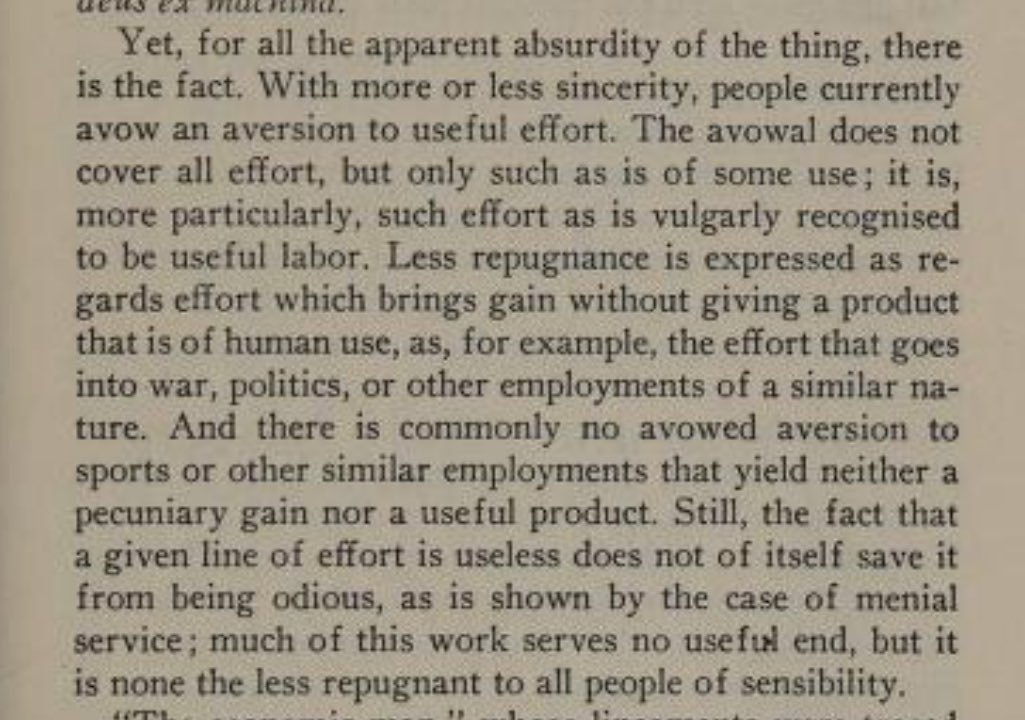Veblen was so prescient he basically articulates how western marxism went astray in 1906 & diagnoses this betrayal as the result of an undue influence of utilitarian/darwinian anglophone hermeneutics transplanting & displacing the “neohegelianism” that undergirds marxism.
“The number of the "revisionists" is very considerable, and they are plainly gaining ground as against the Marxists of the older line of orthodoxy. They are by no means agreed among themselves as to details, but they belong together by virtue of their endeavor to so construe (and amend) the Marxian system as to bring it into consonance with the current scientific point of view. One should rather say points of view, since the revisionist endeavors are not all directed to bringing the received views in under a single point of view. There are two main directions of movement among the revisionists: (a) those who, like Bernstein, Conrad Schmidt, Tugan-Baronowski, Labriola, Ferri, aim to bring Marxism abreast of the standpoint of modern science, essentially Darwinists; and (b) those who aim to return to some footing on the level of romantic philosophy. The best type and the strongest of the latter class are the neo-Kantians, embodying that spirit of revulsion to romantic norms of theory that makes up the philosophical side of the reactionary movement fostered by the discipline of German imperialism.” -Veblen
Veblen defended the Bolsheviks against the “revisionist marxists” after the revolution. His project then became sketching out his vision of American Bolshevism in the form of “A Soviet of Engineers.”
Specifically, he suggests building this soviet/party in America around “trained men at work in transportation, mining, and the greater mechanical industries”— that is to say, not amongst the menial servants & lumpens. 

The ACP is in this sense closer to Veblen than to “Western Marxism” in terms of strategy. The drayage truckers are precisely who Veblen meant.
America’s fetishization of menial service work, which Veblen describes as “useless,” is a consequence of its ideological aversion to PRODUCTIVE LABOR— this is the “leisure empire” where professional athletes are considered “proletarian” because they have a boss 

“Vicarious leisure refers to the non-productive consumption of time by one person as a sign of wealth for another, a concept popularized by sociologist Thorstein Veblen in The Theory of the Leisure Class. This is exemplified by a lord or master whose status is displayed through the leisure activities of their wife and servants, who participate in it on their behalf. It's a social display of wealth, where the leisure itself, and the consumption associated with it, serves to demonstrate the master's ability to afford others not to work”
America’s extensive menial servant class is a display of geopolitical “vicarious leisure”
• • •
Missing some Tweet in this thread? You can try to
force a refresh






